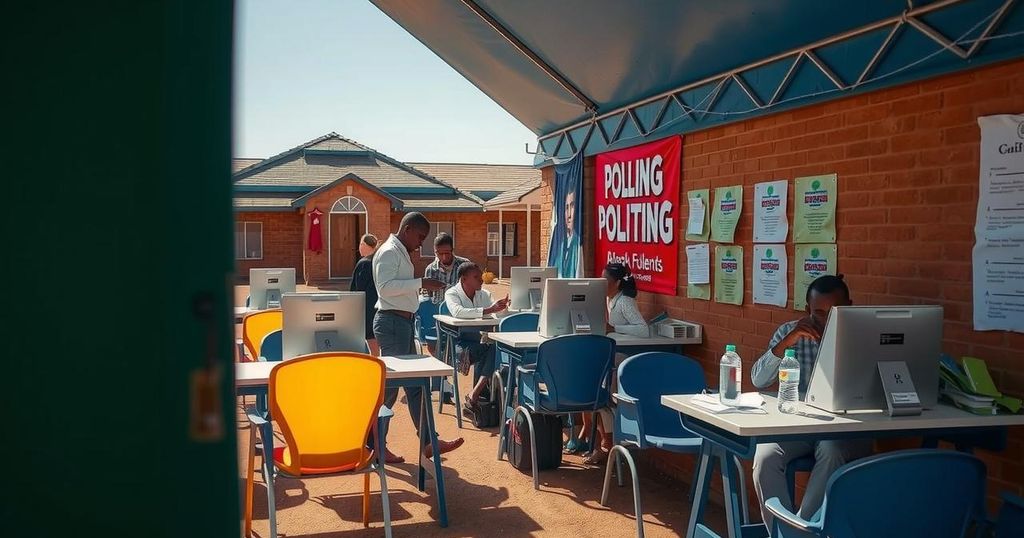Namibian voters faced significant delays during recent elections due to logistical issues, resulting in a second voting opportunity on Friday. Frustration among opposition parties intensified following claims of electoral manipulation by the election authority, particularly impacting the youth demographic. Amidst these tensions, the future political landscape remains in flux as parties navigate discontent and seek to mobilize voters effectively.
On Friday, Namibians were given a second opportunity to vote after widespread disruptions impacted the initial polling days prior. Many voters, frustrated by long waiting times extending up to 12 hours, did not have the chance to cast ballots, prompting allegations of electoral misconduct from opposition parties. The situation was compounded by logistical failures including malfunctioning electronic devices and ballot shortages, which incited criticism from various factions calling for a reevaluation of the election process.
The South West Africa People’s Organisation (SWAPO) party, having held power for 34 years, is experiencing heightened challenges due to a disillusioned youth electorate. There is significant concern regarding election integrity as frustrations regarding youth unemployment and perceived societal inequalities rise. The recent election saw calls from opposition parties, such as the Independent Patriots for Change (IPC), to suspend the voting process amid claims of systematic obstruction by the election authority.
Polling resumed at one designated location in Windhoek, with approximately 60 citizens participating. Despite efforts to facilitate another voting opportunity, many voters expressed dissatisfaction with the limited accessibility and anticipated delays, indicating that past frustrations with the polling process could negatively influence overall electoral turnout. As opposition parties convene to discuss ongoing concerns, the outcome of the elections remains a critical point of contention in Namibia.
This article focuses on the challenges faced during Namibia’s recent elections, heavily shaped by logistical failures that led to significant delays and frustrations among voters. The ruling SWAPO party is currently experiencing mounting pressures due to economic dissatisfaction and a younger demographic seeking representation beyond traditional political structures. Opposition parties view the electoral difficulties as a chance to energize their campaigns amidst declining trust in established political procedures.
The reopening of polls in Namibia reflects the nation’s struggle with electoral integrity and the implications of logistical shortcomings on the democratic process. As opposition parties unite against the ruling SWAPO party, the situation underscores the rising tensions among the electorate, especially youth who are increasingly vocal about their grievances. The outcomes of this election could significantly alter the landscape of Namibian politics and future governance.
Original Source: www.france24.com






